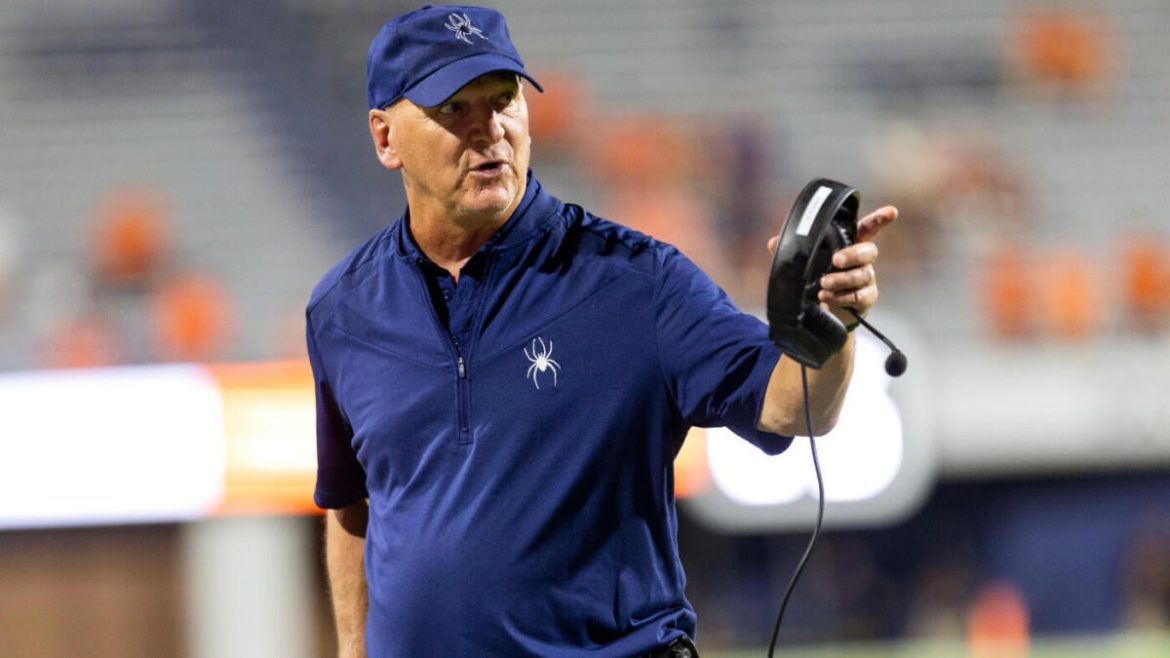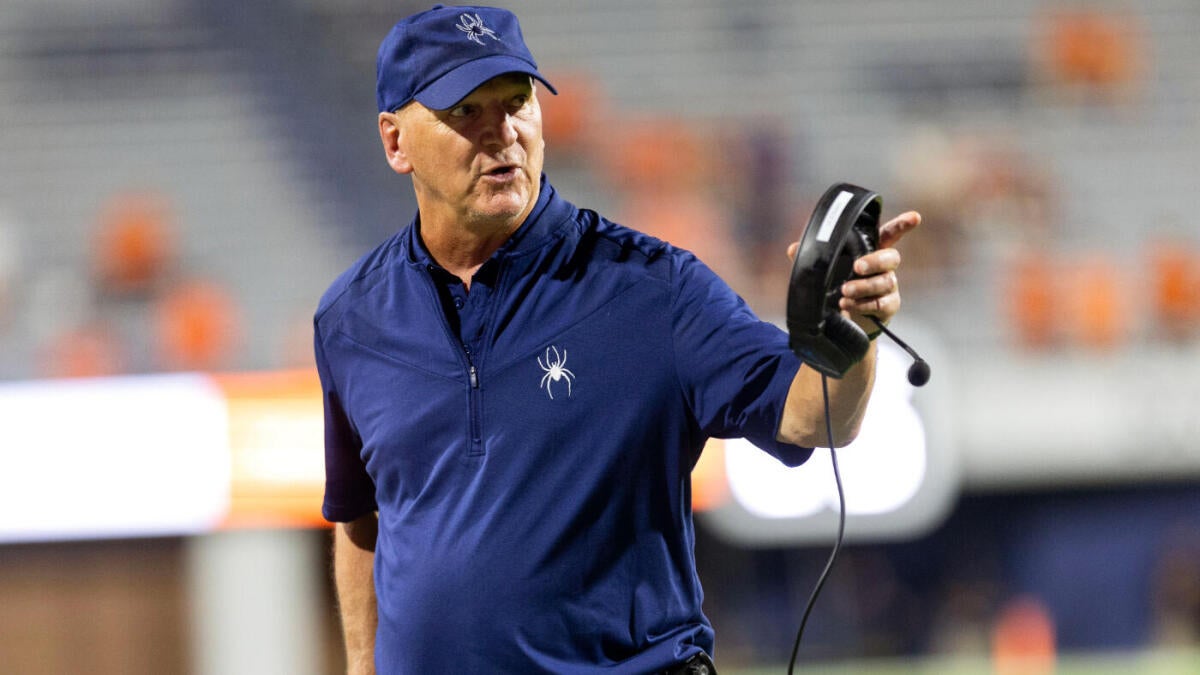Analysis of the Maryland Terrapins’ Alleged Tampering in Football Recruitment: A Closer Look at the Recent Controversy Involving Richmond’s Kicker Transfer
—
Introduction
The Maryland Terrapins football program has recently been embroiled in a controversy that challenges the ethical boundaries of college sports recruitment. Richmond’s head coach Russ Huesman publicly accused Maryland of tampering with one of his promising kickers, Sean O’Haire, alleging that the Terps offered the player $50,000 in an attempt to induce a transfer. This accusation not only casts a shadow over Maryland’s recruiting practices but also spotlights the increasingly competitive—and sometimes questionable—nature of collegiate athletic recruiting, especially in the era of transfer portals and Name, Image, and Likeness (NIL) monetization.
—
Background of the Recruitment Dispute
In May 2025, reports surfaced that Maryland had successfully lured Sean O’Haire, a kicker with significant potential, away from Richmond. According to coach Russ Huesman, Maryland’s approach went beyond the customary recruitment protocols, offering financial incentives that could be construed as tampering. Specifically, Huesman stated, “Maryland tampered with our kicker and gave him $50,000.” This sum, ostensibly intended as an inducement to transfer, is unusual given NCAA rules regarding athlete compensation and recruitment fairness.
The transfer of O’Haire has serious ramifications for Richmond, a strong Football Championship Subdivision (FCS) program that posted an impressive 10-3 overall performance with an undefeated 8-0 record in its conference the prior season. Losing a key player under such contentious circumstances has left Huesman publicly dissatisfied and critical of Maryland’s recruiting ethics.
—
The Broader Context: Transfer Portals and NIL Deals
This incident must be understood within the larger landscape of college athletics where transfer portals have revolutionized how athletes change schools. Maryland’s active role in transfer market maneuvers is well-documented, further illustrated by recent moves in men’s basketball and football rosters. Moreover, the increasing utilization of NIL deals complicates recruitment ethics, as schools seek to offer athletes financial rewards tied to their personal brand—a factor that sometimes blurs the lines between permissible NIL negotiations and improper inducements.
The Maryland Terrapins are known to operate with substantial budgets in support of their programs, including the employment of external consultants in searching for coaching staff, evidenced by a reported $50,000 expenditure on a coaching search consultant. This financial muscle may extend into recruitment strategies, which could explain instances such as the alleged $50,000 offer to O’Haire.
—
Examining Maryland’s Football Program and Recruitment Track Record
Maryland football has been under scrutiny in recent years, not only for recruitment strategies but also due to cultural issues within the program. The firing of coach DJ Durkin following player protests and fatalities highlighted systemic challenges within the Terrapins’ football environment. Despite these setbacks, Maryland continues aggressive pursuit of top athletic talent to remain competitive in the Big Ten Conference, which carries greater visibility and revenue potential.
The successful acquisition of transfers like O’Haire suggests Maryland’s willingness to leverage transfer portals and NIL leverage aggressively. However, the allegations of direct financial inducements cross into the murky terrain of NCAA violations and ethical lapses.
—
Ethical and Regulatory Implications
The accusation of giving a kicker $50,000 is significant not only because of the size of the sum but also because it raises potential NCAA violations regarding improper benefits. While NIL deals have allowed athletes to monetize their personal brand, direct monetary payments linked solely to recruitment are explicitly prohibited.
Coach Huesman’s public denouncement implies that Maryland’s recruitment tactics may not just be borderline but outright unethical, potentially prompting NCAA investigations. Such allegations, if substantiated, could result in sanctions against the Terrapins, impacting scholarships, fines, or even postseason bans.
Furthermore, this controversy feeds broader debates on the fairness and transparency of college sports recruitment, where wealthier programs may exploit financial advantages to attract transfers, destabilizing competitive balance and compromising integrity.
—
Impact on Richmond and Collegiate Football Dynamics
For Richmond, losing a key player like O’Haire under questionable circumstances represents a competitive and morale setback. It undermines the program’s efforts in player development and recruiting, especially since the kicker reportedly had no prior intention to transfer until Maryland’s intervention.
This incident could also influence recruitment dynamics across college football, especially for FCS programs that typically lack Maryland’s resources. It illustrates how financial muscle in the transfer portal era can create a chasm between programs, with wealthier schools potentially coercing talent away from smaller programs through offers that may contravene NCAA rules.
—
Conclusion: A Turning Point for Recruitment Practices?
The Richmond coach’s public allegations against Maryland shine a harsh light on the evolving and increasingly fraught nature of college football recruitment. The $50,000 offer, if true, represents more than a mere recruitment tactic—it could be a tipping point illustrating the unchecked power of major programs in the NIL and transfer era, and the consequent ethical and regulatory challenges.
Going forward, this controversy is likely to accelerate demands for clearer rules and enforcement mechanisms around transfer recruiting and NIL compensation. It also invites introspection for programs like Maryland regarding the balance between competitive ambition and adherence to integrity.
Maryland’s handling of this issue, and the NCAA’s response, will be closely watched as a bellwether for the future of college athletics recruitment, with implications that resonate well beyond a single kicker’s transfer.
—
In summary, the public censure by Richmond’s coach of Maryland’s alleged tampering underscores a critical junction in college sports—where financial incentives and recruitment strategies collide with age-old principles of fairness and sportsmanship. The resolution of this episode could define new standards for recruitment ethics in the coming years.





